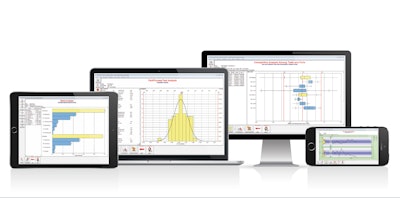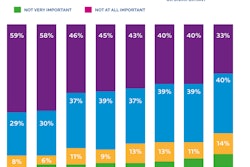
As individuals, we safeguard ourselves from the unknown future. We childproof the electrical outlets in our homes to prevent shock and scratchproof mobile devices to protect them from drops. But in manufacturing, how can companies future-proof their quality systems from the ever-changing tides of technology? By the time new systems complete deployment, there is already something better on the market. In fear of wasting the investment, many organizations remain idle instead of proactively seeking out best practices to prepare for the future.
Fortunately, cloud-based technologies can help manufacturers stay up to speed with the latest quality management technology without fear of premature obsolescence. This rapidly advancing technology allows manufacturers to reap the benefits of an up-to-date, standardized quality system, while removing inconsistencies and preventing obsolescence. However, migrating to the cloud requires change.
Break from the Status Quo
You know what to expect from your current system. A new system brings a combination of rewards from improved quality control and risks of technology failure that can accompany a major upgrade. For this reason, many manufacturers opt to stay with the status quo. But, this means that organizations with multiple plants likely have to maintain disparate—and often completely different—enterprise quality solutions, practices and standards at each location. True, the status quo probably works fine for now, but what happens when it doesn’t?
Every manufacturer is acutely aware of the damage that a recall can do to its organization, both financially and to its reputation. So, why do manufacturers continue to utilize status-quo systems that make it nearly impossible to determine where in their value chain issues arise, much less how to proactively prevent unfavorable outcomes? Without a clear, overall view of operations, these enterprises end up with tunnel vision—the inability to see the greater impact that data can offer beyond its local context. Manufacturers must be vigilant about ensuring that their quality systems are current and providing value to the company.
The cloud offers this value by eliminating data siloes and creating visibility across all operations through one, centralized system of truth. Standardizing the way every plant collects and analyzes data, implements quality standards, and conducts quality checks removes inconsistencies across the organization and ensures everyone is on the same page. Furthermore, the ability to easily maintain and upgrade cloud-based technology ensures all systems are future-proofed.
Remove Inconsistencies
Just as people in the United States are divided among the terms Coke, soda and pop, there is similar dissidence for manufacturers when inconsistencies exist among plants—different naming conventions, calibrations, methods of calculation, units of measure, procedures, etc. These inconsistencies all prohibit manufacturers from seeing the big picture. The cloud forces standardization across all locations, allowing decision-makers to look at quality data from each plant on an individual level or collectively as a single entity.
Quality data also has a second life beyond the manufacturing floor as a resource to find weaknesses, identify best practices and target areas for continuous improvement with the highest potential return on investment. Manufacturers can only attain this level of insight and visibility from an up-to-date quality management system.
Prevent Obsolescence
With on-premise quality systems, manufacturers must physically implement the latest updates at each facility. This is particularly daunting for companies with plants around the world. Rather than take on the challenge, many stay stagnant. But with each upgrade that is ignored, manufacturers drift closer to obsolescence. Too many depend on software that is at least two to three versions behind. Because fewer technicians understand older versions, support becomes increasingly difficult or even impossible.
With a cloud-based system, instead of spending time and money making software upgrades plant by plant, changes are applied across the entire enterprise all at once. Outsourcing the day-to-day heavy lifting to your cloud provider—maintaining servers and software, monitoring security, and applying upgrades automatically—enables manufacturers to focus on quality, rather than software and hardware maintenance and upgrades.
The cloud also provides flexibility and scalability to accommodate future growth. As new lines and plants are introduced, they can be immediately connected to the quality system without new investments in hardware and software. Suppliers, too, are easily incorporated into the quality system so manufacturers can gain visibility throughout their supply chain and see the quality of raw materials before they are shipped.
Henry Ford once said, “If I had asked people what they wanted, they would have said: faster horses.” Instead, Ford thought outside of the box about what people really needed—automobiles. It’s time for manufacturers to take the same chance, but on a proven technology. Rather than considering an on-premise solution that requires continuous upkeep and will inevitably become outdated, look toward the cloud. Manufacturers don’t need to be afraid of future technology upgrades. Future-proofing with the cloud ensures they will always have a state-of-the-art solution with dedicated technology professionals at hand to support it.

















